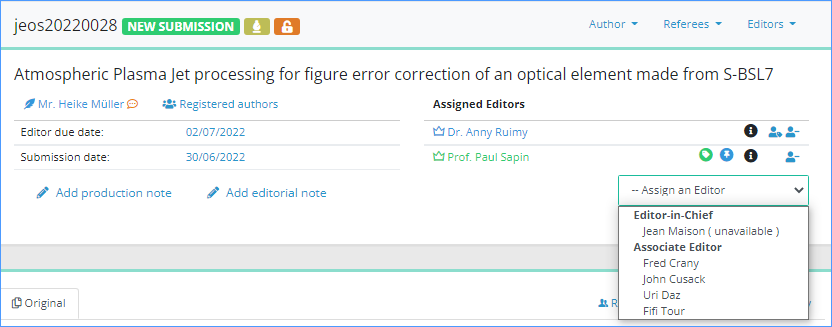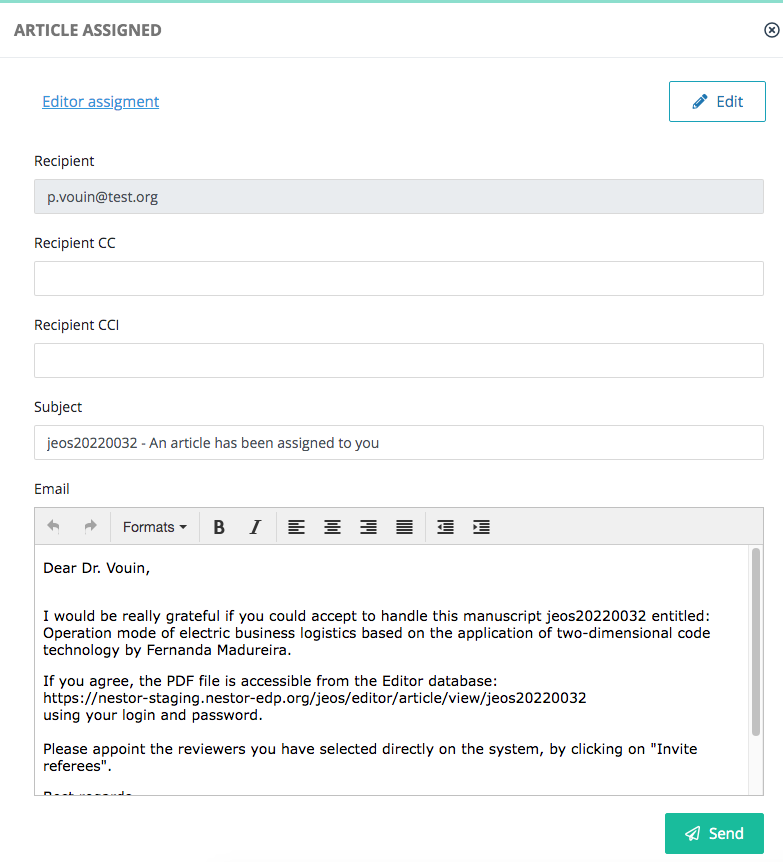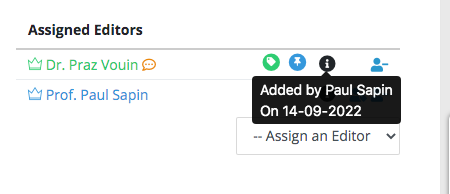Assigning an editor
If you are an Editor-in-Chief, you will likeky assign articles to other editors (e.g. Associate Editors, Co-Editors, Area Editors, Guest Editors, etc.).
Click on the ‘Assign an Editor’ menu and select the editor you want. This opens the e-mail pop-up window (you will often see this kind of pop-up in NESTOR). >> Pay attention, if you click on the Send button, the letter is sent directly without any editing.
If you click on the letter name or on the Edit button, this unfolds the letter and you can edit it before sending.
Current editor
When an editor is assigned to an article, Nestor automatically supposes this editor is responsible to move the editorial process forward: the editor is now considered "current editor". An information tool tip displays who assigned the editor.
At any given time, the current editor:
- is highlighted with a green name and a green icon
- is supposed to ensure the editorial process moves forward
Editor in charge
Additionally, when an editor is assigned, and if his profile allows it, Nestor will consider this editor in charge.
At any given time, the editor in charge:
- is highlighted with a blue icon
- is considered responsible of the manuscript scientific evaluation
Note that most of the time, an editor is both "current" and "in charge".
However, this can change later on in the process.
Typically, at the acceptance stage:
- the scientific editor will remain in charge
- and a copy editor gets assigned, and is now "current"
A information tool tip displays who assigned the editor:
In addition there is a green icon close to the editor who is supposed to take action.
Whereas, the blue icon means which editor is in charge, this implies they is responsible for manuscript evaluation. Most of the time, both icons are close to the same editor, but later on in the process, you will see they can be put on two different editors.
A information tool tip displays who assigned and on what date.




